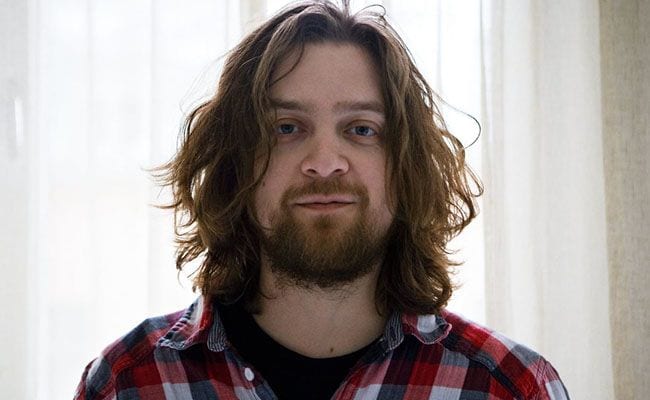
What is the purpose of music in the 21st century? When attention spans are measured by the millisecond and human interaction is largely expressed in 140 characters or less or through hash-tags and bastardized English, does it function as it once did, requiring the listener’s full and undivided attention? Or do we no longer possess the ability to invest the requisite time, effort and energy to process music the way previous generations had? Has music devolved into little more than the soundtrack to our overly commercialized capitalist society or mere white noise spilling out of earbuds as we make our way through the day?
Furthermore, the advent of the Internet has not only changed the face of the music industry from a business and consumer standpoint, but has also helped democratize the ability to produce and distribute music. Because of this, there has accumulated a massive surfeit of music and media vying for our already limited attention. Where previous generations made a concerted effort to seek out and acquire new music, physically pursuing albums that are now a keystroke away, today we simply point and click, search and acquire. And once acquired, the listening experience is largely an individual act, a far cry from the communal consumption of music during the rise of rock and roll, the evolution of pop music into a contemporary art form and the subsequent stylistic splintering that seemed to have come to a head sometime near the end of the last century.
With development of truly new and different sounds and styles having largely stagnated, artists now look to past for bits and pieces they can look to reassemble into some semblance of the familiar in hopes of striking a nostalgic chord with listeners desperately searching for the visceral impact music had in their youth. Much of this has been made manifest in the fetishizing of vinyl by a broad social demographic. Here we have a physical format once thought long dead having risen once more in the early years of the 21st century. Is it nostalgia or the idea of having a connection with others, owning or seeking out the same physical product to have and hold? In this, we’ve made our way into the ultimate musical nostalgia trip: contemporary artists replicating previously explored music sounds and styles through an archaic medium. It’s the natural evolution of an obsession with the past.
Taking this idea to its logical conclusion, electronic musician Prins Thomas has created a series of stylistically varying albums that serve as an overview of the preceding decades compressed into the here and now. Operating largely within an electronic or dance-oriented format in the early years of his career, Thomas has since expanded his sonic palette to include elements of jazz, indie rock, industrial and minimalist techno. For Principe del Norte, he eschews stylistic dabbling in favor of a wholly immersive approach. Focusing on one single genre, Principe del Norte serves less as form of individualized tracks than a meditative exploration of arpeggiated synths and arrhythmic textures that require little in the way of direct attention from the listener.
Over nine side-long explorations — each assigned a letter rather than a name, further negating the notion of this being an album of songs or distinct tracks — Prins Thomas creates a series of contemporary explorations of ambient and minimalist composition that simultaneously owe more to various ‘70s krautrock, prog and early new age musicians than any 21st century artist. And yet Prins Thomas is a decidedly 21st century artist in his approach here. He is not attempting any sort of revisionist take on these massive double and triple albums from which he has sourced his inspiration. Rather it plays as an attempt to replicate within a modern musical framework music that is nearly five decades old. Principe Del Norte plays more like a middle-period Tangerine Dream album than the more club-oriented material for which his largely known, both solo and with his frequent collaborations with Lindstom.
But by simplifying his approach and sharpening his focus onto a relatively old form, he has created an album well suited to that of modern listeners. Rather than requiring one’s full attention throughout, Principe del Norte functions as an ambient soundscape that can be explored either directly and in close-up or from a 10,000-foot overview that shapes the basic idea of the sonic landscape. It’s music that can be skimmed, tuned in and out of and otherwise relegated to background noise without the integrity being compromised. Whether traveling through crowded streets or working away in an office cubicle, tracks “A” through “H” (there are actually two “A” referred to simply as “A1” and “A2”) provide a constant, comforting backdrop against which the world can unfold as it sees fit.
This approach serves Prins Thomas well as he (hopefully temporarily) leaves behind the more rhythm-centric approach of his previous albums in favor of an immersive ambient listening experience. Principe del Norte is an album and collection of tracks to be heard but not necessarily listened to. Kept on a loop, the more than 90-minute album begins to adopt a meditative quality, its repetitions proving hypnotic in their ability to simultaneously allow the listener to wander and apply direct focus. With attention spans being what they are, an album of this length is a bold move. But Principe del Norte ultimately proves to be one that pays off in its ability to ease its way in and out of your conscious. Be it headphones or turntable, put this album on and go about your day. It’ll be here for you when you need it.


![Call for Papers: All Things Reconsidered [MUSIC] May-August 2024](https://www.popmatters.com/wp-content/uploads/2024/04/all-things-reconsidered-call-music-may-2024-720x380.jpg)



